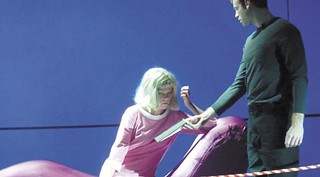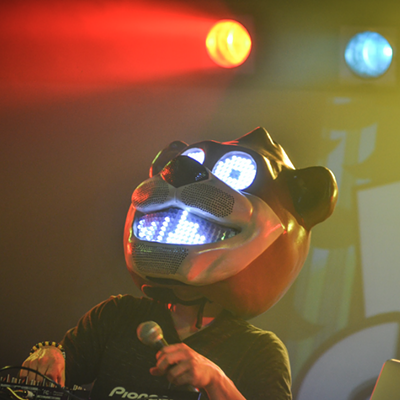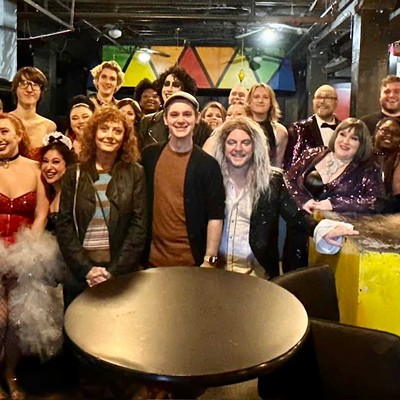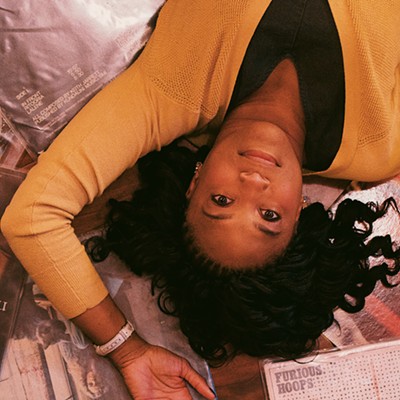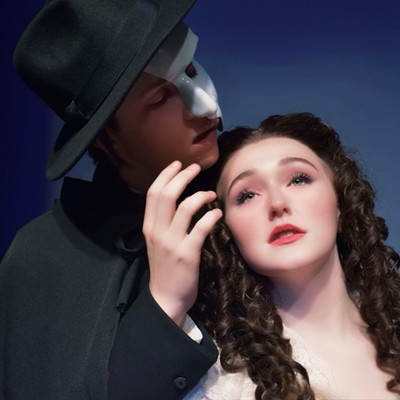In Ray Bradbury's futuristic story Fahrenheit 451, a group of brutish law-enforcers called the Firemen are responsible for "disciplining" anyone caught with books - the paper is instantly burned, and things don't go so well for the possessor, either.
The truly scary thing is, in this future, book-burning isn't necessary all that much. "We just shun intellectualism," one of the Firemen says. Observes another character: "The public stopped reading of its own accord."
Sharon Ott is directing Bradbury's own stage adaptation of his 1953 novel this weekend at the Lucas Theatre. "It's almost like the state apparatus to actually burn books is now so imbedded in our culture that we don't really, in some ways, need the Firemen," she observes. "The future is already upon us, and inside us, burrowed in, in a horrific way."
Ott is at the top of a massive pyramid for this multi-media production. More than 120 people - SCAD actors, technicians, videographers, artists and animators - have been collaborating for several months to bring Fahrenheit 451 into the 21st century.
"The genius of it is, it's 50-some years later and it's still a completely prescient cautionary tale," says Ott. "In some ways the play is less dated than the novel, because Bradbury had to cut out a lot of the sci-fi fiction writing that's in the novel.
"But the core of it, the knowledge that he had when he wrote it back in the mid 20th century, that society was headed for a place where people forgot humanist values, and forgot the power of thinking, he's dead-on right. It's scarier than ever now, because it's right upon us."
Fireman Guy Montag is the troubled central character in Fahrenheit 451; he's part of a fascist, hedonistic society where absolute law is enforced absolutely, and those who still believe in free thinking are outlaws, hiding in the forest and reading books out loud to one another, constantly looking over their shoulders should the Firemen discover them.
Bradbury's visceral novel is a beloved classic of the sci-fi genre. For Ott, the key to accepting the stage play is the very fact that Bradbury himself penned the script, after expressing his dissatisfaction with the 1966 film adaptation by French screenwriter and director Francois Truffaut.
"Any narrative work of fiction works differently when it's adapted to a stage play," Ott points out. "There's no chance to really do the same thing, because the experience of reading a novel is so much different than the experience of seeing a play.
"Bradbury said he just sat back and let the characters speak to him more, knowing that he had to convey the story more in dialogue form and not with descriptive narrative.
"I think he disagreed with a lot of the things Truffaut did in his film version, but he picked up on a couple of the things he liked. He changed the end of the story. He wrote very eloquently, too, about why he made those changes for the play, which has a very different feel from the novel."
Ott believes the plays retains the essence of Bradbury's original story. "It's creepy in a different way," she says. "Some of the narrative creepiness that really is the strength of the novel can't be there onstage, except maybe through what we can do in terms of atmosphere."
That atmosphere is being created through a complex combination of effects, video technology, animation and art. "We're doing things that I've never seen anybody try," the director points out. "So some of it is the kind of experimentation that a major university can attempt. And should attempt. And at SCAD, that's what we are. So why not give it a try?"
It's the wave of the future, Ott says, although she's adamant that adding technology will never completely replace the essential experience of live theater.
"But since it's at SCAD, and this is something President Wallace is interested in, and the school is interested in, how can we stretch the boundaries of using different sorts of media in the service of narrative?"
Fahrenheit 451
Where: Lucas Theatre, 32 Abercorn St.
When: At 8 p.m. March 9-12; at 3 p.m. March 13
Tickets: $15 general admission, $10 with senior, military or student ID, $5 with valid SCAD ID. Tickets are free with valid SCAD ID for March 9 performance only
Online: scadboxoffice.com

